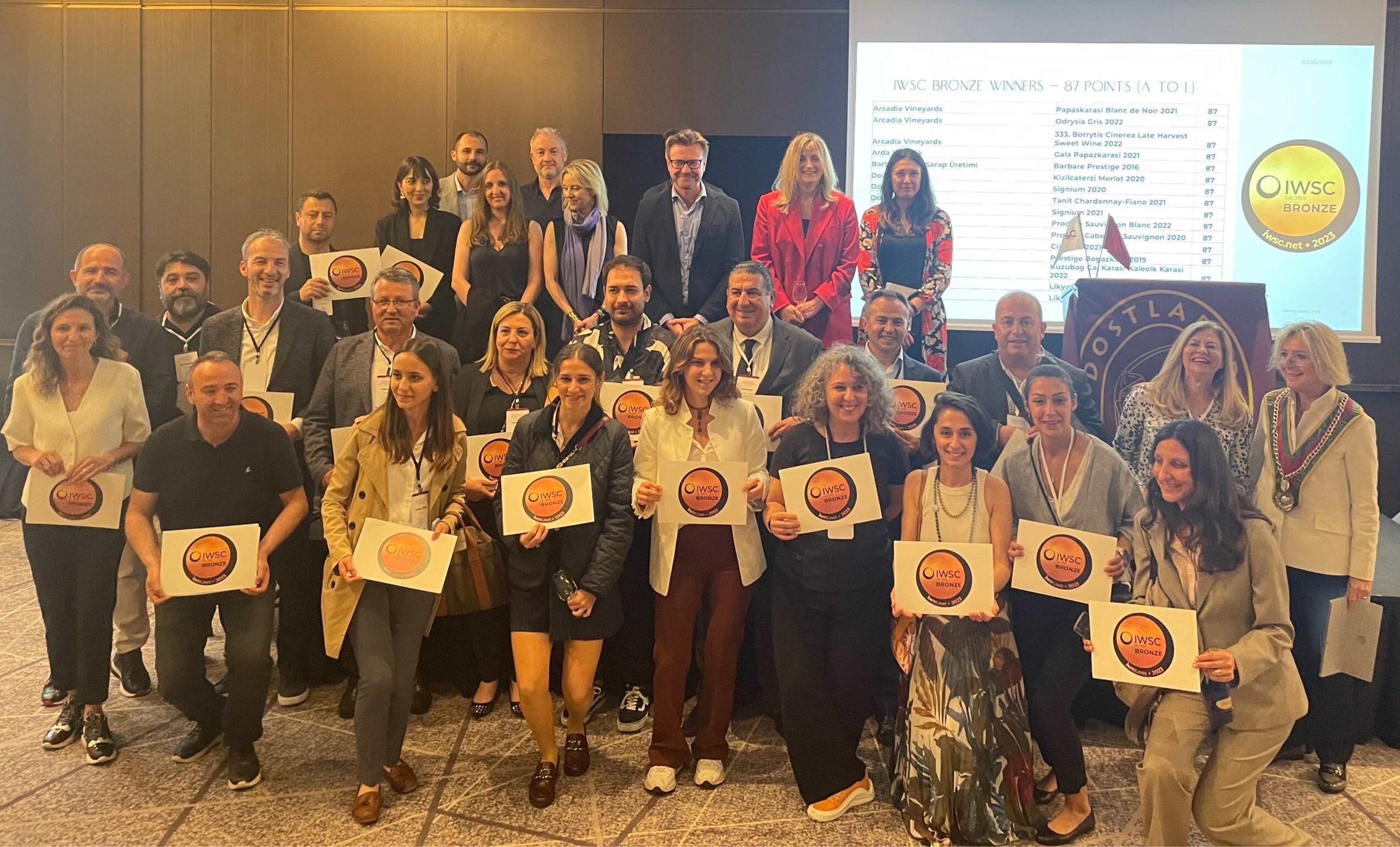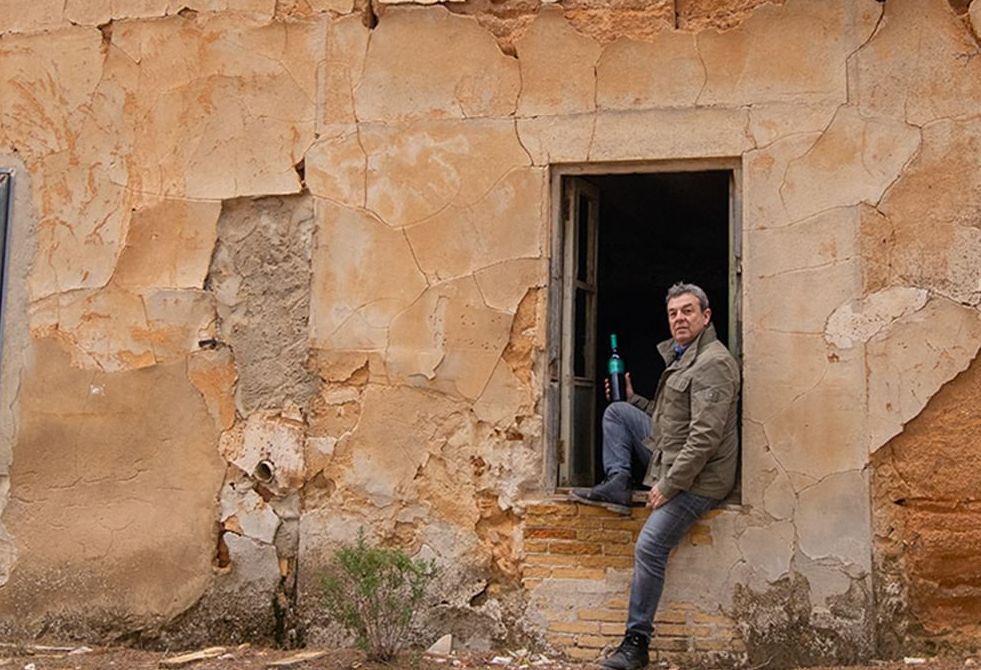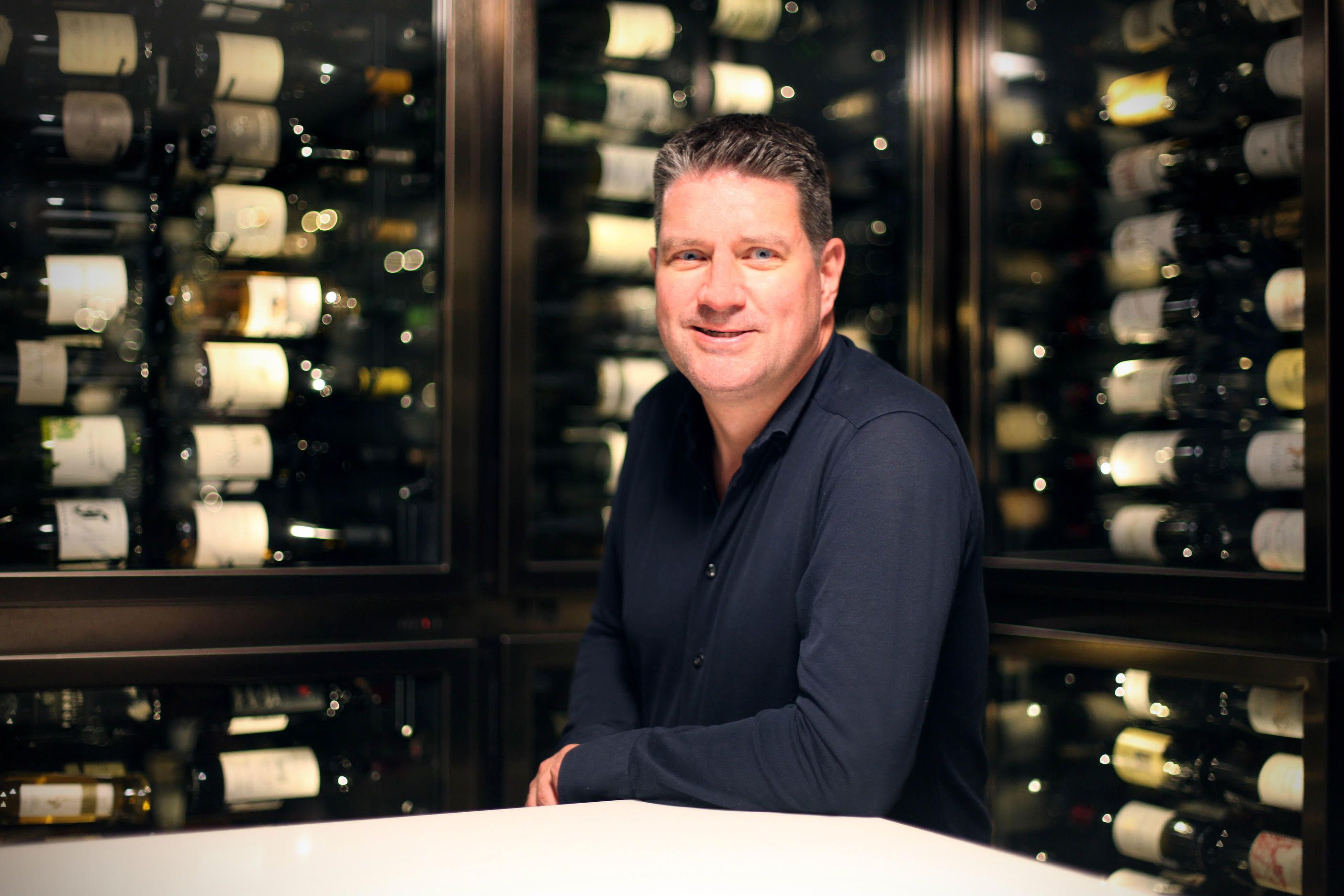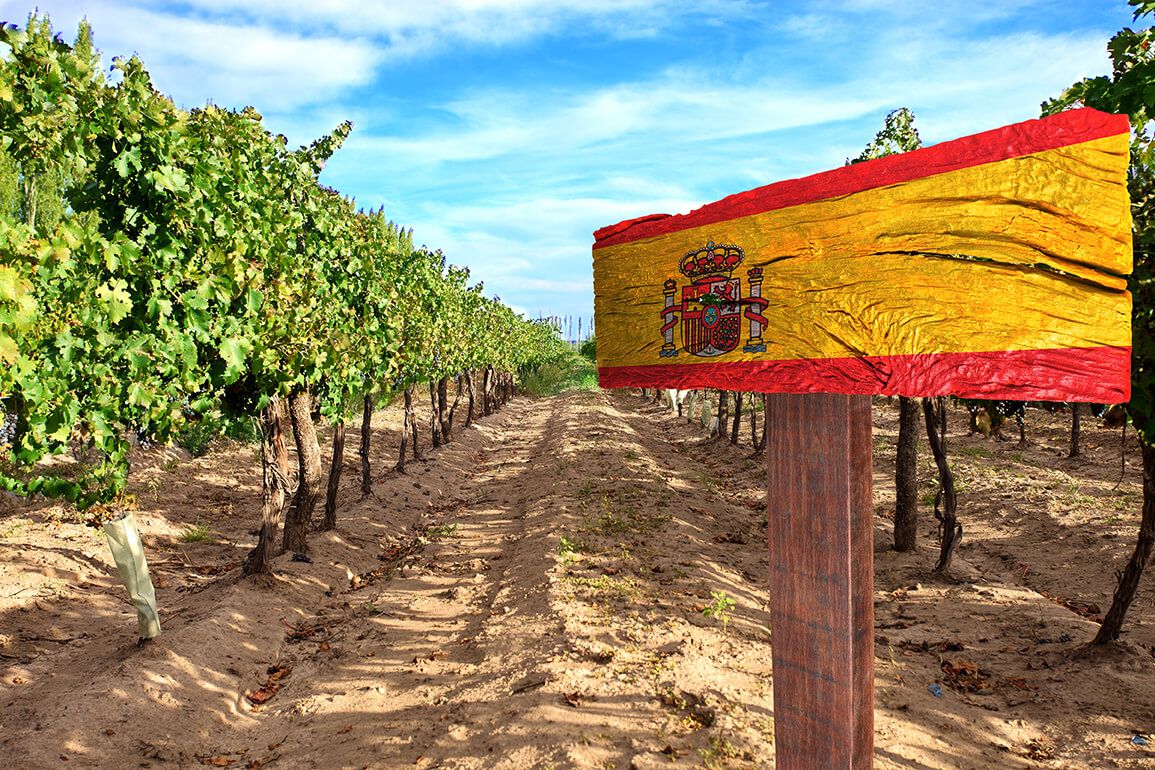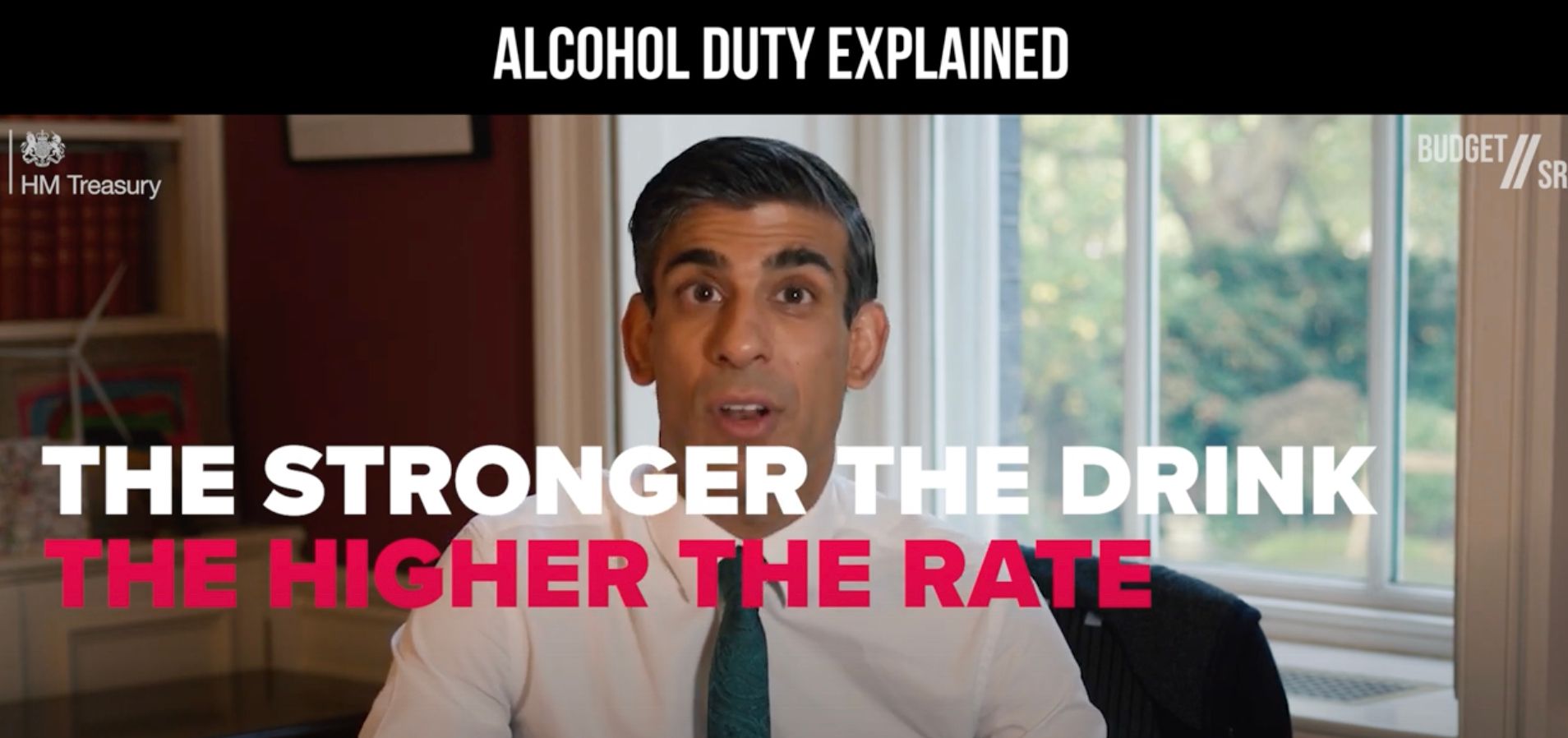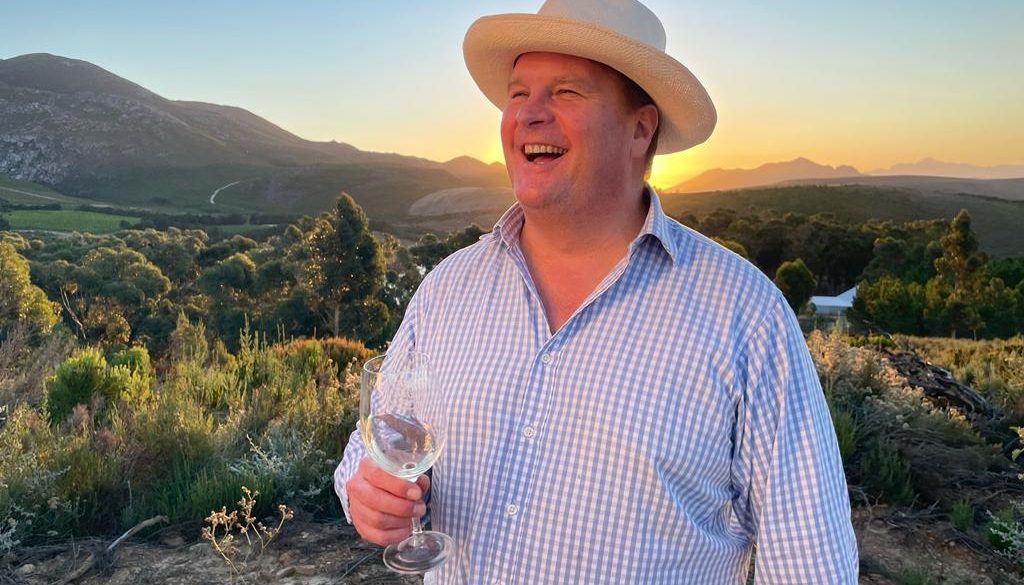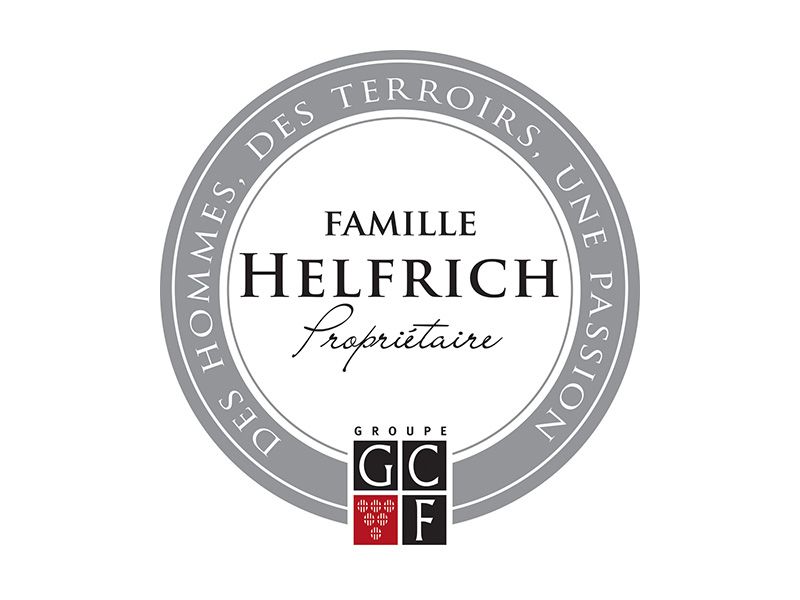The IWSC’s Turkish wine judging IWSC took place alongside the Tuğrul Şavkay Turkish Wines Competition in June. In all five gold medals were awarded along with 44 silver medals and 131 bronze medals. Click here to see the full results.
Turkey’s wines have been something of a secret, certainly in the UK’s crowded market, so it might come as a surprise to find the country actually has the fifth largest vineyard area in the world.Granted, these days, a mere 3% of those grapes are destined for wine, but the country has an illustrious vinous history dating back to the early origins of viticulture and was, during the late 19th century, one of the main producers of wine for the whole of Europe, as phylloxera wrought devastation elsewhere.Throw in some remarkable treasures, courtesy of its distinctive indigenous grapes, homegrown talent in the form of its winemakers, and it is possible to picture Turkey as a major player once again.
With a relatively subdued domestic market – not to mention a difficult political climate for alcohol – to build back, Turkey’s wine industry must reach out, extolling the virtues of its distinctive native varieties and highlighting the voyage of discovery that it offers wine lovers, with the ambition of making Öküzgözü, Narince or Emir trip off the tongue in just the way Malbec, Picpoul or Albariño do these days.
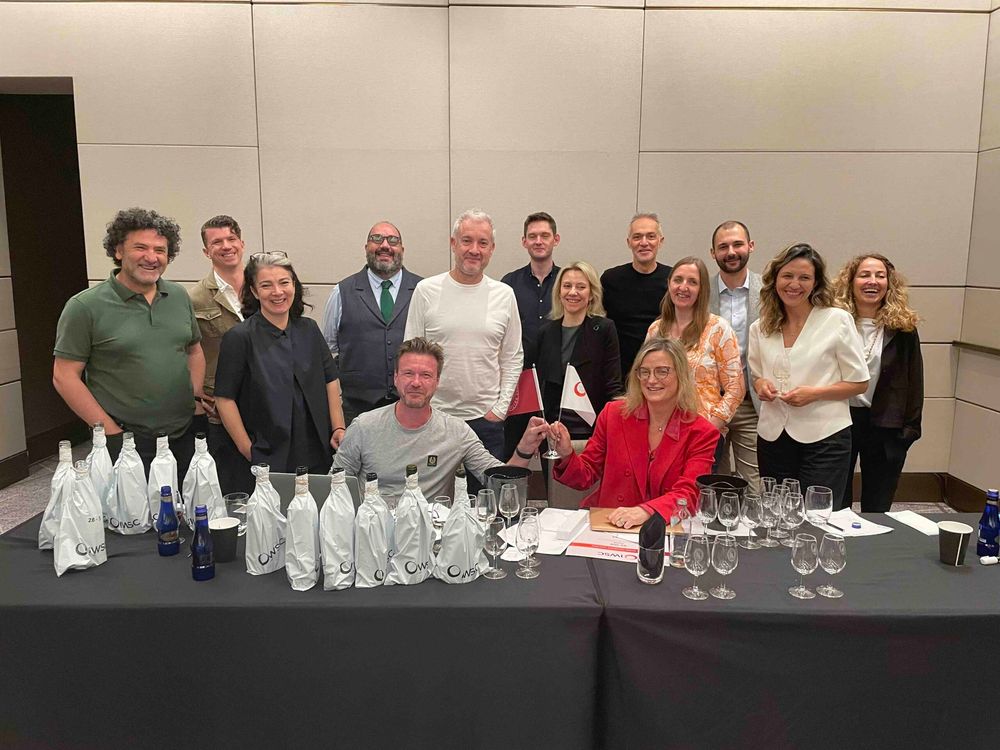
The IWSC’s and Tuğrul Şavkay Turkish Wines Competition judges ready to start the Turkish wines judging
Hence the adroit move to invite the IWSC, its team of international judges teaming up with the Tuğrul Şavkay Turkish Wines Competition for two concurrent events to assess its wines.At the helm, two Masters of Wine, Sarah Abbott and Alistair Cooper – the former with more than a decade’s experience of Turkish wines, the latter a newcomer to the country, but a veteran judge with a deep understanding of what’s required to break into markets.
Among the visiting judges, based at the Raffles Hotel, six IWSC experts: Friarwood’s Salvatore Castano, Rebecca Palmer of Corney & Barrow, retail consultant Cat Lomax, Trivet’s Isa Bal MS, Enotria&Coe’s Richard Lewis (now with Majestic) and myself, with each team complemented by local experts, immersed in Turkey’s domestic market.
Describing “an exciting, diverse and very promising tasting,” Abbott said a change of style was evident in the wines that performed well:“I have been closely following the wines of Turkey for more than 10 years and the most exciting thing I saw in our tasting was the lightness of touch that is now much more common in Turkish winemaking and I think this comes from an increased confidence in their own distinctive style, quality and profile.”
“What Turkish wines can offer is a combination of this really gorgeous, expressive brightness of fruit that almost has a slightly ‘New World’ feel that is countered by really lovely, interesting textures and an almost ‘Old World’ structure, most especially in the reds,” she adds.
Improved quality
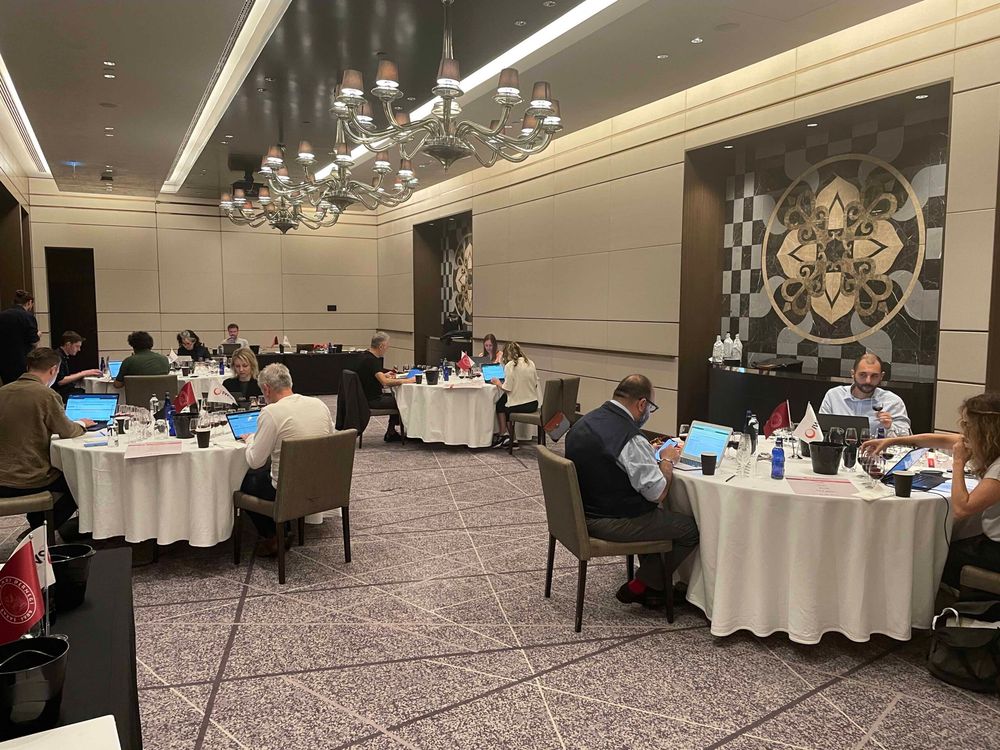
The IWSC judges get down to business
From a total of more than 270 wines assessed, there were an impressive five gold medals which neatly demonstrated Turkey’s diverse mix of indigenous and international varieties – an Emir and a Öküzgözü-led red blend from Cappadocia, a Narince and Erciş karası from Anatolia and a Bordeaux blend from Thrace-Marmara – along with 44 silver medals and 131 bronze (see the full results here).
“I think the diversity of the wine styles is really much improved and very exciting,” adds Abbott. “When I first went to judge in Turkey we were tasting a lot of international varieties and, don’t get me wrong, I think there’s a place for international varieties in Turkish vineyards: some of the Rhône style blends – Grenache, Syrah and Marsellan – can do really well in Turkey (and), in the right place, Sauvignon Blanc can do well and is a very popular variety with consumers, allowing Turkish wines to get the listings in the smart wine bars that they need, alongside the imported wines.
“But the really exciting aspect is that more and more unique, indigenous varieties are being made into exciting wines. We have so many fantastic rare varieties that were almost extinct, but have been revived by dedicated winemakers, from cuttings in ancient vineyards ,and these are making really delicious different, very contemporary wines.”
For his part, Cooper admitted that the day of judging had confounded his own expectations:“I was really very impressed, more so than I expected. I feared some, shall we say, abuse of oak, but I was wrong. How refreshing is that? Producers have clearly listened to global trends, because that is really not what the market demands at the moment. For me, it was the indigenous varieties that were far more interesting – they really did show the diversity of the terroir that they have here, with some styles of wine that are really resonating with consumers.”
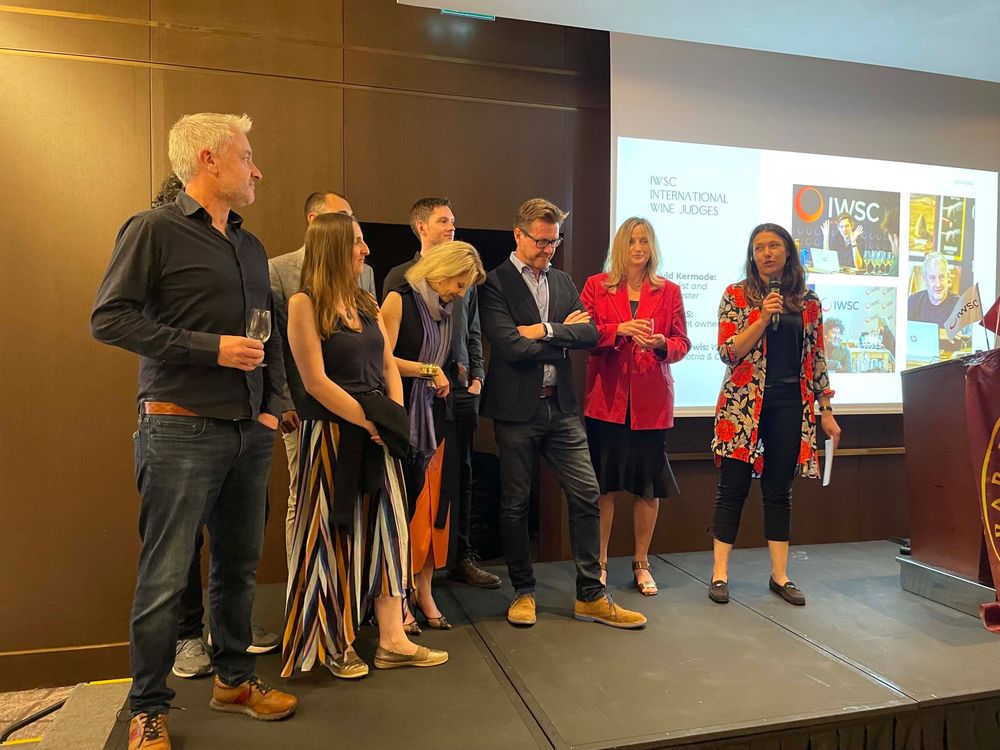
Christelle Guibert, chief executive of the IWSC, introduces the judges at the medal ceremony held in Turkey after the judging
Next steps…
So how does Turkey capitalise on the success of the judgement of Istanbul?It is no easy feat, but let’s not forget that the shelves of Britain’s retailers are lined with bottles from countries that scarcely made wine fifty years ago and there’s plenty of evidence that international acclaim, through winning medals, is a tested route to greater profile through consumer awareness.The IWSC commits itself to helping medal winners capitalise on their success.
With her experience in the buying teams of some of the UK’s most successful wine retailers, Lomax believes there is a potential route to success for Turkey’s winemakers: “My takeaway (from judging) is that there is so much for customers in the UK to discover. I think the thing that really surprised me was the sheer number of grape varieties that were on show, not just Turkey’s indigenous varieties but also the international ones as well. Being very honest about it, there really isn’t a presence for Turkish wines in large-scale UK retail (so) there’s a huge amount of opportunity there because there is no prejudice to overcome, there’s a blank canvas and a chance to start a new relationship with the customer. It will be challenging but there is huge opportunity there.”
- Find out more about IWSC and its competition here and details of how to enter your wines and spirits into the 2024 competitions.
